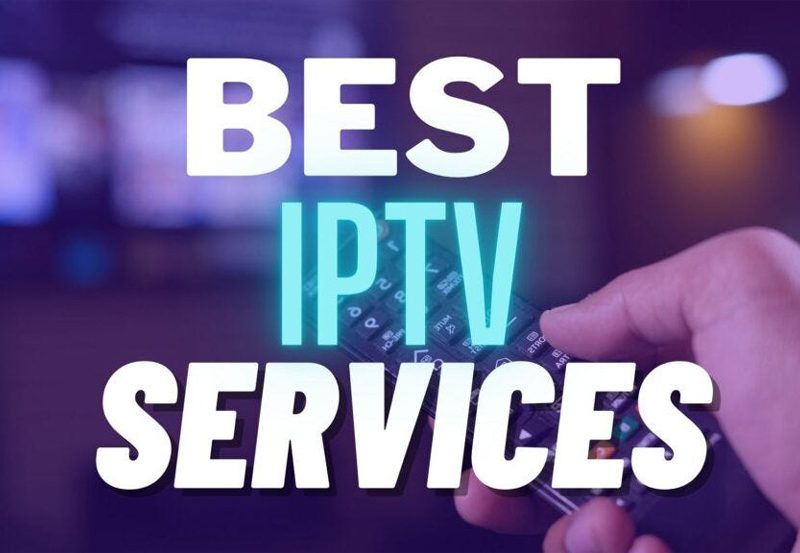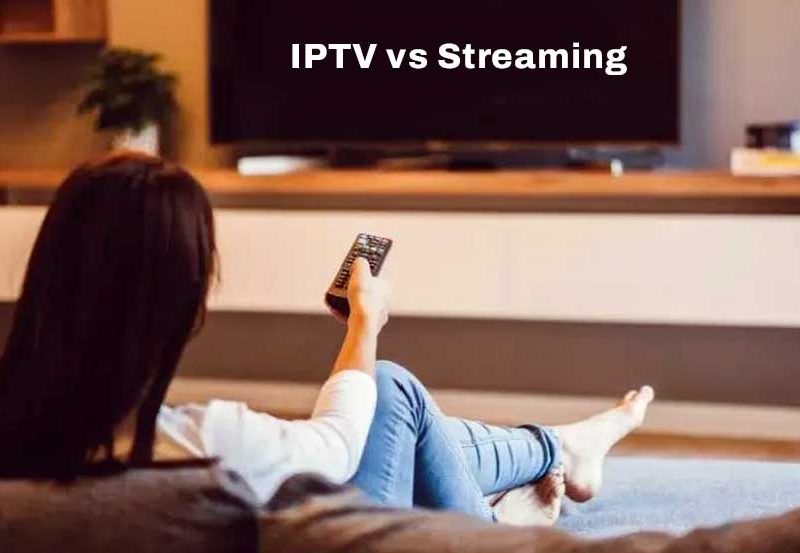Television has undergone significant evolution since its introduction in the early 20th century. John Logie Baird successfully demonstrated the first television in 1926, with broadcasts commencing in the United States and Europe during the 1930s. The medium’s popularity surged after World War II, with the 1950s and 1960s witnessing television’s emergence as a primary source of news, entertainment, and advertising.
1 Month IPTV Subscription – Buy Now
This era also saw the introduction of color television, further transforming the industry. Technological advancements in the 1970s and 1980s, such as cable and satellite television, expanded channel offerings and programming diversity, fostering increased competition and innovation. The 1990s brought digital television, enhancing picture and sound quality, and introducing high-definition television (HDTV).
The early 2000s marked the transition to digital broadcasting, enabling more efficient use of the broadcast spectrum and facilitating the development of new technologies like Internet Protocol Television (IPTV).
Key Takeaways
- Television has come a long way since its early days, evolving from bulky, black-and-white sets to sleek, high-definition screens.
- IPTV is changing the television industry by delivering content over the internet, allowing for greater flexibility and interactivity.
- Traditional cable and satellite IPTV providers are facing competition from IPTV, leading to a shift in the way consumers access and consume television content.
- IPTV offers advantages such as on-demand viewing and a wider range of content, but it also comes with disadvantages like potential buffering and internet connectivity issues.
- The future of television is heavily influenced by IPTV, with advancements in technology and content delivery shaping the way we watch and interact with TV.
The Rise of IPTV: How Internet Protocol Television is Revolutionizing the Industry
Advancements in Broadband Technology
IPTV has been made possible by advancements in broadband internet technology, which has made it possible to deliver high-quality video content over the internet.
Content Delivery Options
One of the key advantages of IPTV is its ability to deliver a wide range of content to viewers, including live television, video on demand (VOD), and interactive services. This has made IPTV a popular choice for consumers who want access to a diverse range of programming options.
New Business Models and Industry Impact
Additionally, IPTV has enabled new business models for content delivery, such as subscription-based services and pay-per-view options. This has led to increased competition in the television industry and has forced traditional cable and satellite providers to adapt to the changing landscape.
The Impact of IPTV on Traditional Cable and Satellite TV
The rise of IPTV has had a significant impact on traditional cable and satellite television providers. As more consumers turn to IPTV for their television viewing needs, traditional providers have been forced to adapt to the changing landscape. This has led to increased competition in the industry, as traditional providers seek to retain their customer base in the face of new technologies.
One of the key ways that traditional providers have responded to the rise of IPTV is by offering their own internet-based television services. This has allowed them to compete with IPTV providers by offering similar features and content options. Additionally, traditional providers have sought to differentiate themselves by offering exclusive content and partnerships with other media companies.
This has led to increased innovation in the industry and has resulted in a greater variety of programming options for consumers. Despite these efforts, traditional providers have faced challenges in retaining their customer base in the face of IPTV. Many consumers are attracted to the flexibility and interactivity offered by IPTV, as well as the ability to access content on multiple devices.
This has led to a decline in traditional television subscriptions, as more consumers opt for internet-based television services. As a result, traditional providers have had to adapt their business models and invest in new technologies in order to remain competitive in the changing landscape.
The Advantages and Disadvantages of IPTV for Consumers
IPTV offers a number of advantages for consumers, including greater flexibility in how they access and consume television content. With IPTV, consumers can access live television, video on demand, and interactive services on a wide range of devices, including smartphones, tablets, and smart TVs. This allows for greater convenience and accessibility in how consumers watch television.
Additionally, IPTV offers a greater variety of programming options for consumers, including access to international channels and niche content that may not be available through traditional providers. This has made IPTV a popular choice for consumers who want access to a diverse range of programming options. Furthermore, IPTV has enabled new business models for content delivery, such as subscription-based services and pay-per-view options, which can offer greater value for consumers.
However, there are also some disadvantages to IPTV for consumers. One of the key challenges is ensuring a reliable internet connection in order to access high-quality video content. Additionally, some consumers may find that navigating the wide range of programming options available through IPTV can be overwhelming.
Furthermore, there are concerns about privacy and security when accessing content over the internet, which may deter some consumers from adopting IPTV.
The Future of Television: What to Expect from IPTV
The future of television is likely to be shaped by the continued rise of IPTV as a dominant form of content delivery. As more consumers turn to internet-based television services, traditional providers will be forced to adapt their business models in order to remain competitive. This is likely to lead to increased innovation in the industry, as providers seek to differentiate themselves by offering exclusive content and partnerships with other media companies.
Additionally, the future of television is likely to be characterized by greater interactivity and personalization in how content is delivered and consumed. IPTV has made it possible for consumers to access a wide range of programming options on multiple devices, and this trend is likely to continue as technology continues to advance. This will allow for greater flexibility and convenience in how consumers watch television, as well as more personalized recommendations and content options.
Furthermore, the future of television is likely to be shaped by advancements in technology that enable new forms of content delivery, such as virtual reality and augmented reality. These technologies have the potential to revolutionize how consumers experience television content, offering immersive and interactive experiences that were previously not possible. As a result, the future of television is likely to be characterized by greater innovation and diversity in how content is delivered and consumed.
The Role of IPTV in the Streaming Wars: How it is Shaping the Content Landscape
The Emergence of New Business Models
One of the key ways IPTV has shaped the content landscape is by enabling new business models for content delivery, such as subscription-based services and pay-per-view options. This has led to increased diversity in how content is delivered and consumed, as well as greater value for consumers.
Increased Flexibility and Convenience
IPTV has made it possible for consumers to access a wide range of programming options on multiple devices, leading to greater flexibility and convenience in how they watch television. This shift has enabled consumers to watch their favorite shows and movies whenever and wherever they want, at an unprecedented level of convenience.
How to setup IPTV on Smart TV via STB?
A New Era of Innovation and Diversity
The rise of IPTV has enabled new players to enter the content landscape, such as streaming services like Netflix, Amazon Prime Video, and Hulu. These services have disrupted the traditional television industry by offering exclusive content and innovative business models that appeal to a wide range of consumers. As a result, the streaming wars have led to increased innovation and diversity in how content is delivered and consumed, shaping the content landscape in significant ways.
The Challenges and Opportunities for IPTV in the Global Market
IPTV faces a number of challenges and opportunities in the global market as it continues to revolutionize the television industry. One of the key challenges is ensuring a reliable internet connection in order to access high-quality video content. This is particularly challenging in regions with limited broadband infrastructure, where consumers may struggle to access internet-based television services.
Additionally, there are concerns about privacy and security when accessing content over the internet, which may deter some consumers from adopting IPTV. This is particularly relevant in regions with strict regulations around internet usage and content delivery. Furthermore, there are challenges related to licensing and distribution rights for international content, which can make it difficult for IPTV providers to offer a diverse range of programming options.
Despite these challenges, there are also significant opportunities for IPTV in the global market. As more consumers turn to internet-based television services, there is growing demand for diverse programming options that cater to a wide range of interests and demographics. This has created opportunities for new players to enter the market and offer innovative business models that appeal to a global audience.
Furthermore, advancements in technology are likely to create new opportunities for IPTV in the global market. For example, developments in virtual reality and augmented reality have the potential to revolutionize how consumers experience television content, offering immersive and interactive experiences that were previously not possible. As a result, there are significant opportunities for IPTV providers to innovate and differentiate themselves in the global market by offering unique content experiences that appeal to a wide range of consumers.
In conclusion, IPTV has revolutionized the television industry by offering greater flexibility and interactivity in how content is delivered and consumed. As more consumers turn to internet-based television services, traditional providers have been forced to adapt their business models in order to remain competitive. This has led to increased competition in the industry, as well as greater innovation and diversity in how content is delivered and consumed.
Despite facing challenges related to internet connectivity, privacy concerns, and licensing rights, there are significant opportunities for IPTV in the global market as technology continues to advance and create new possibilities for content delivery.
If you’re interested in learning more about how to set up IPTV, you should check out the article “How to Setup IPTV on Riptv” on chromecastiptv.click. This article provides a step-by-step guide on how to get started with IPTV, which is a great complement to understanding how IPTV is changing the game in the evolution of television.
FAQs
What is IPTV?
Best IPTV stands for Internet Protocol Television, which is a system through which television services are delivered using the internet protocol suite over a packet-switched network such as the internet, instead of being delivered through traditional terrestrial, satellite signal, and cable television formats.
How does IPTV work?
IPTV works by delivering television content over the internet protocol (IP) network. This content is delivered to the viewer through a set-top box or other device that decodes the incoming data and displays it on a television screen.
What are the advantages of IPTV over traditional television services?
Some advantages of IPTV over traditional television services include the ability to access a wider range of content, including on-demand and interactive features, as well as the potential for lower costs and improved picture and sound quality.
How is IPTV changing the television industry?
IPTV is changing the television industry by providing new ways for viewers to access and interact with television content. It is also enabling new players to enter the market and compete with traditional television providers.
What are some examples of IPTV services?
Examples of IPTV services include Netflix, Hulu, Amazon Prime Video, Rapid IPTV, as well as traditional television providers that are offering IPTV-based services alongside their traditional offerings.
What are the challenges facing IPTV?
Challenges facing IPTV include competition from traditional television providers, regulatory issues, and the need to continually invest in infrastructure to support the delivery of high-quality content over the internet.





